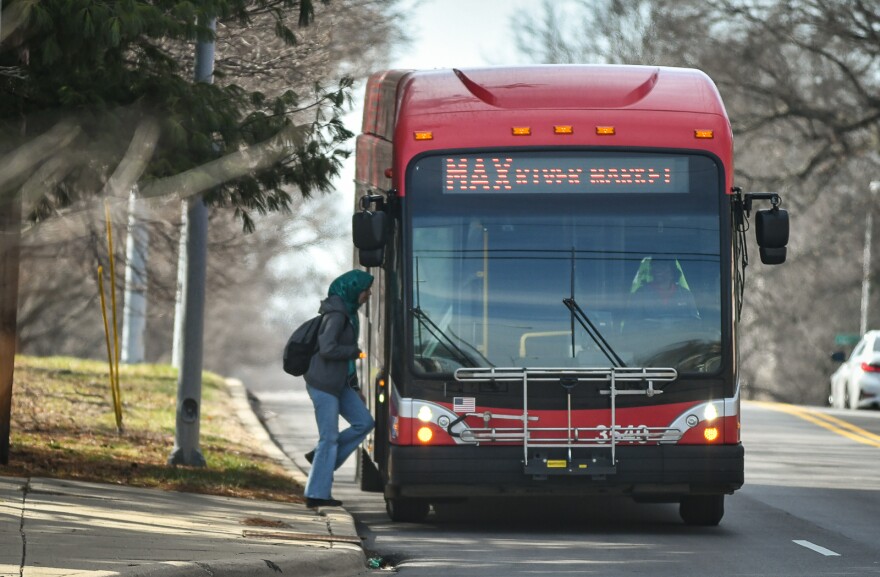Kansas City voters will be asked in November whether to renew a sales tax that supports public transit for the next decade.
The tax was last renewed in 2009 and is set to expire next March. If voters renew it, Kansas City would charge a 0.375% sales tax on retail sales of property or services, then allocate the money to the Kansas City Area Transportation Authority when the city renews its annual contract with the agency. Officials estimate the renewed sales tax will bring in about $421 million over the next 10 years.
Officials say the current sales tax has generated $371 million from 2010 to this year. For the 2023-2024 fiscal year, $37 million from the sales tax went to the KCATA.
The City Council voted unanimously on Thursday to put the sales tax on the November ballot. It comes as the KCATA has fielded public criticism for cutting routes and running buses less frequently since the COVID-19 pandemic, leading elected officials and residents to complain the bus system has become less efficient.
According to data collected by the KCATA, on-time performance for buses was below pre-pandemic levels until July, when on-time performance was at 93.5% compared to 81% in July of last year.
Bus ridership is back up to pre-pandemic levels, said KCATA CEO Frank White III, adding that the agency is operating under budget.
Kansas City is the metro’s largest contributor to the KCATA. In addition to the 0.375% sales tax, the agency also receives funding from a half-cent retail sales tax that Kansas City collects and allocates to the KCATA.
White warned that other municipalities need to chip in.
“For this thing to work and to keep your costs down, we've got to get more regional input financially and support for regional transportation,” White told city council members on Wednesday.
Kansas City finance director Tammy Queen told council members this week that funds from the transit sales tax will not be subject to tax increment financing, meaning the city won’t have to redirect any of the money from the tax to support any incentive deals.
A previous version of the ordinance did not specify that the renewed sales tax would go to the KCATA. A committee changed that language this week to specify that the KCATA would receive the tax dollars once Kansas City collects them.
“Without this language, this wouldn't be possible. It wouldn't be possible for KCATA to be the face for transportation, for the Super Bowl wins that we have, for the World Series,” said Nick Miller of the Local 1287 Amalgamated Transit Union. “We have the World Cup coming up. So all these things are very important.”
The KCATA’s current budget is $117 million. Possible renewal of the transit sales tax comes as the KCATA is exploring other transit programs outside of buses. The agency and Kansas City officials launched IRIS earlier this year, a ride service akin to Uber and Lyft for residents.
IRIS’s rollout has some public transit advocates worried that the program will come at the expense of strengthening existing bus service. The KCATA announced this summer that it will discontinue its bus service to Gladstone, after Gladstone officials said they couldn’t afford to pay increased costs for its contract with the transit agency. Instead of paying for the bus service, Gladstone opted to try IRIS instead.
Mayor Quinton Lucas tweeted this week that he looks “forward to other communities in our metropolitan area stepping up to do the same to build the world-class system we deserve, not just from Kansas City taxpayers.”
Mahreen Ansari, a member of the Kansas City chapter of the Sunrise Movement, supports renewing the sales tax. Ansari said she’s lived in parts of the city with poor bus service and other areas of the city with better, more efficient service.
She said she wants to see shorter wait times for buses and more benches and shade at bus stops, particularly as the Midwest experiences hotter summers from climate change.
“I'm grateful for our bus system and how it's been able to serve so many of us who need it,” she said. “But I know that our current system is not enough. We need a bus system that can keep up with the growing Kansas City.”







